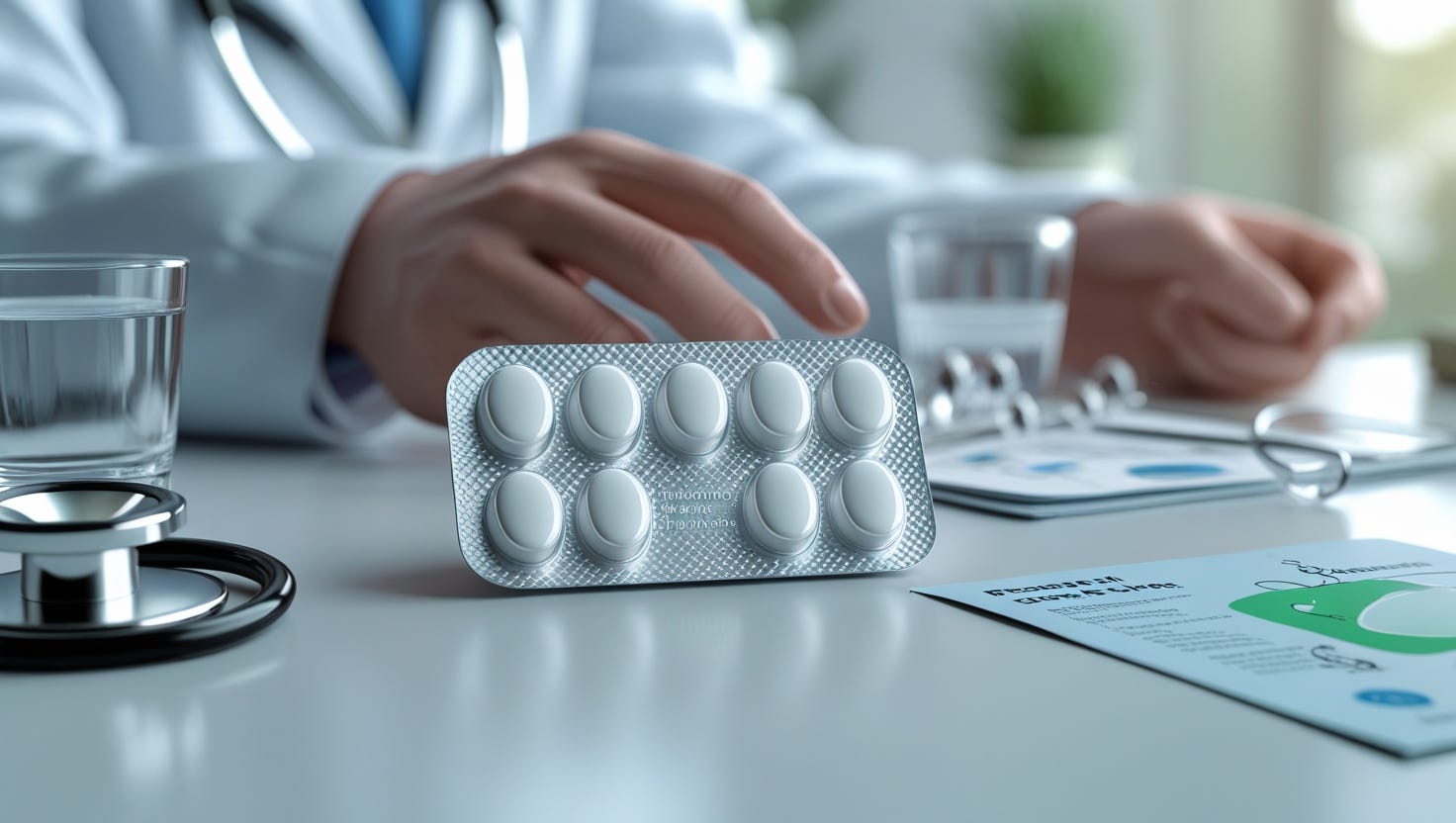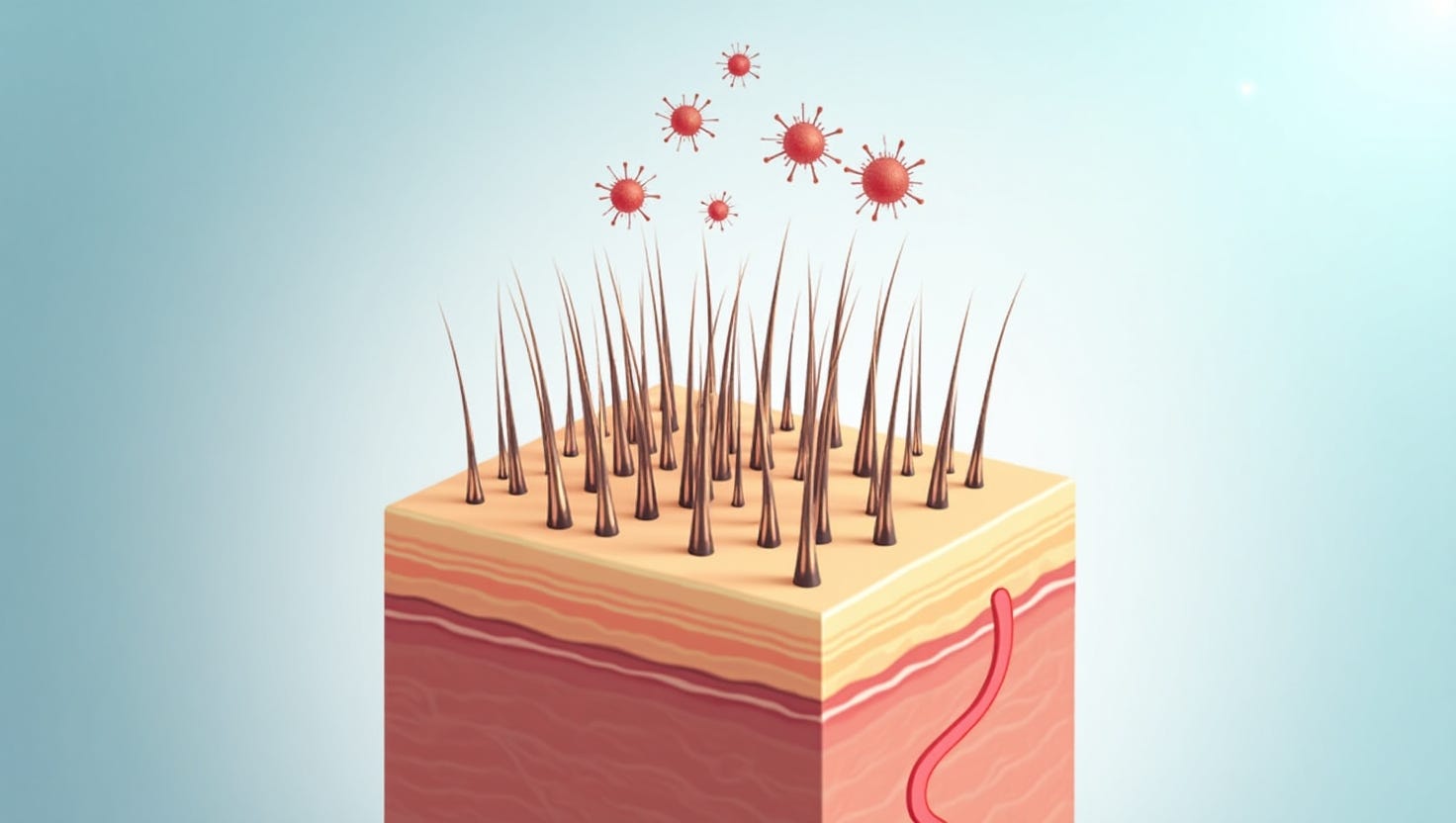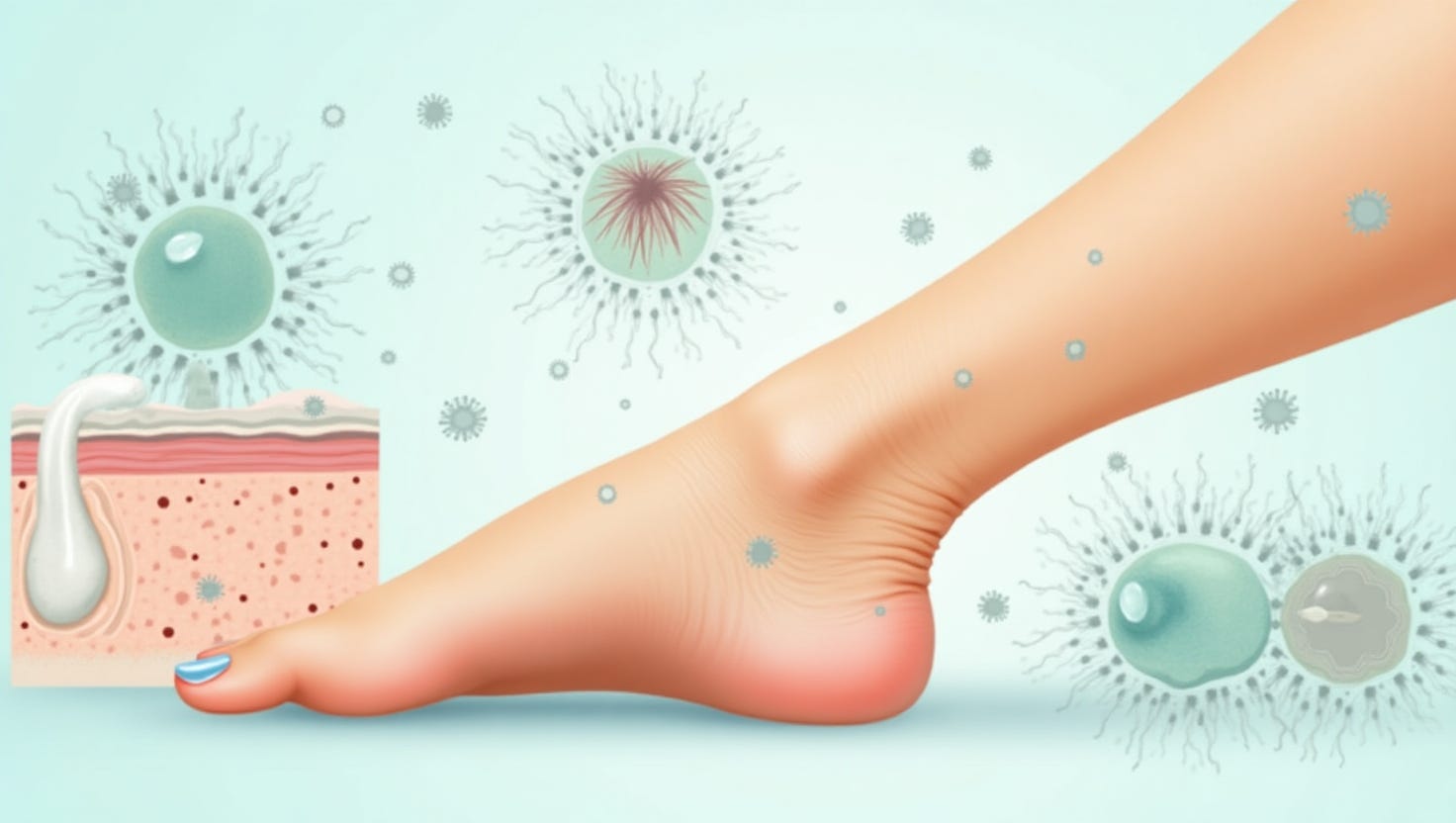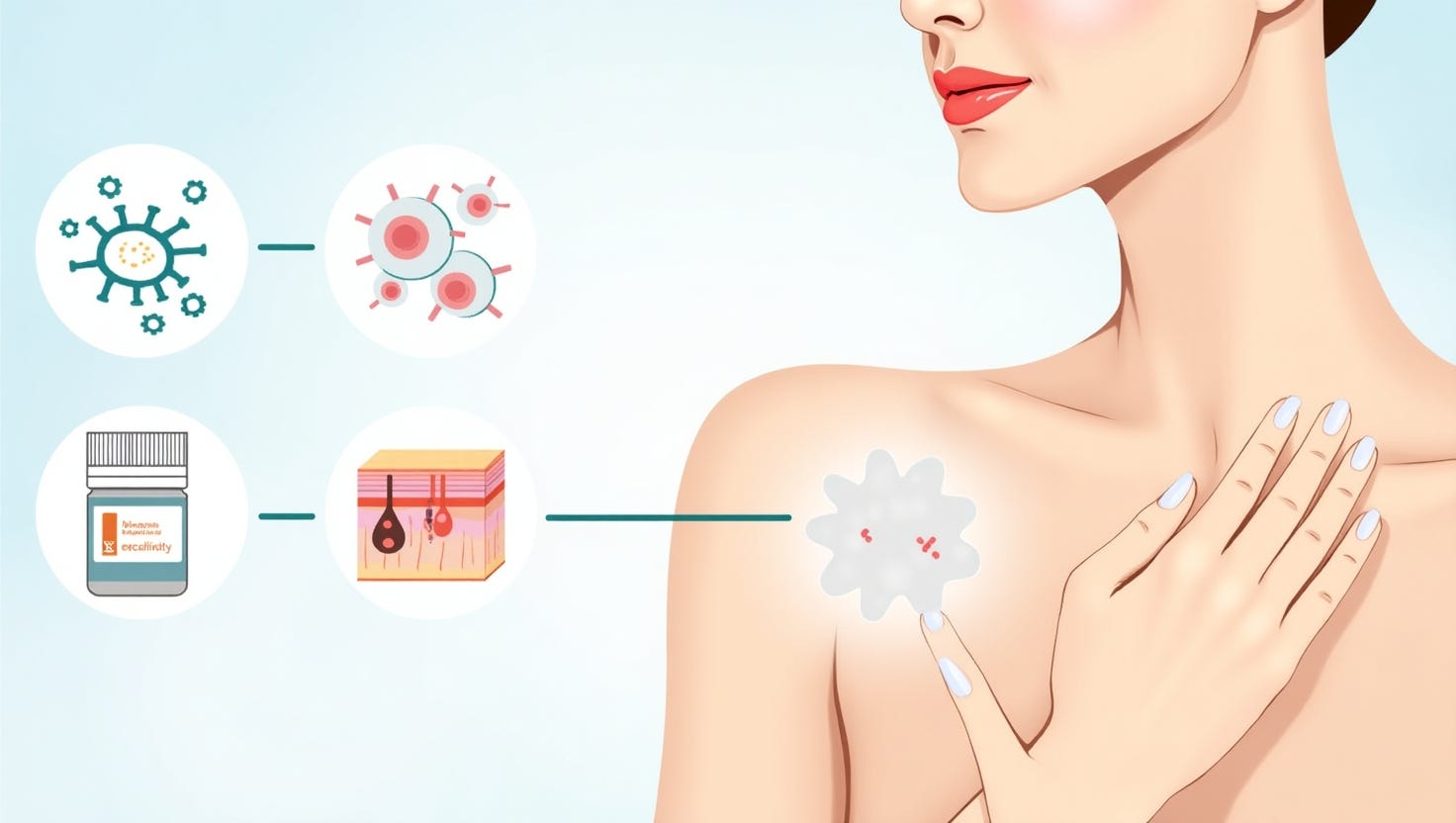Psoriasis On Face: Symptoms, Causes, And Treatment Options

Table Of Contents
- Psoriasis: An Overview
- Causes
- Symptoms of the Disease
- When to Consult a Doctor?
Psoriasis: An Overview
Face psoriasis, also known as facial psoriasis, is a disorder that creates thick, discoloured, and scaly patches of skin on your forehead, around your eyes, on your cheeks, or your chin. Facial psoriasis can also impact the skin surrounding your lips, eyebrows, and nose. Plaques are the medical term for these rash-like areas. Because psoriasis is a chronic disorder with no known treatment, its symptoms might appear and disappear suddenly.
Causes Of Facial Psoriasis
Some experts hypothesise that psoriasis is brought on by inflammation in the body, yet further study is required to determine the actual cause of the condition. The development of plaques on the skin and excessive skin cell production may result from this.
When T cells in the immune system become overactive, psoriasis develops. Most of the time, this type of cell defends the body against germs and other infectious diseases.
A trigger, irritant, or allergen that sets off an attack of symptoms may cause psoriasis on the face. The following factors can cause face psoriasis:
- Stress.
- An illness.
- Response to medicine.
- Skin injury.
However, even with no infection, the body nonetheless activates T cells in people with psoriasis. The subsequent activation of various inflammatory responses by the T cells leads to an uncontrollable growth of skin cells.
Symptoms Of Facial Psoriasis
Plaques develop on the skin of your face due to psoriasis symptoms, which can range in severity from moderate to severe. Skin lesions known as plaques include:
- Dry.
- Either flaky or scaly.
- Discoloured, ranging from pink to red, red to purple, or brown to silver.
- Thick.
Face psoriasis often starts at the hairline and spreads down towards the chin. The symptoms may mimic dandruff if a plaque forms near your hairline and the scales slough off. You may have discomfort and difficulty eating if psoriasis develops close to your mouth.
Plaques of psoriasis on your skin might make you somewhat itchy. Plaques on your skin may rupture if you scrape at them. This could result in an infection or an open sore. Infection symptoms include fluid discharge (pus), oedema, and a burning or painful sensation.
Treatments For Facial Psoriasis
Patients with moderate to severe psoriasis and those whose symptoms don't improve after using topical or steroid therapies may decide to take biologic drugs. These disease-modifying treatments have the potential to slow the disease's course and halve the frequency of flare-ups. They function by preventing particular immune system proteins or cells from inducing inflammation.
The biologics are given via injection or infusion by medical professionals. By taking this approach, psoriasis' primary cause—immune activity—is addressed. Although it does not entirely cure psoriasis, it can decrease its progression and lower the likelihood of flare-ups.
Hydrocortisone and other over-the-counter (OTC) topical corticosteroids can be applied to the face. This may lessen the occurrence and intensity of face psoriasis. However, OTC topical steroids should only be used temporarily.
In addition to the use of steroids, the skin on the face can also be rinsed with a saline solution to ease discomfort and suffering.
OTC remedies that are accessible include:
- Products that remove scale
- The off-label therapy tazarotene cream or gel is presently accepted for treating acne.
- UV light should only be used under a doctor's supervision.
A doctor would suggest exercising extreme caution while administering drugs to the region if the skin around the eyes is affected by psoriasis. This is because several over-the-counter psoriasis therapies have the potential to harm the eyes, which might result in glaucoma or cataract development.
A person can take several measures in addition to applying these topical treatments to lessen irritation as much as feasible. These comprise:
- Maintaining clean skin by using mild, non-soap cleansers
- Using moisturisers often
- Wearing sunscreen daily to lessen the impact of UV radiation
A person can best manage their face psoriasis by regularly practising complete self-care.
When To Consult A Doctor?
Consulting a dermatologist for facial psoriasis is essential if you or someone you know experiences:
- Severe or worsening symptoms.
- Large, painful, or persistent patches.
- Discomfort, itching, or pain.
- Difficulty in eating, talking, or seeing due to facial involvement.
- Emotional distress or impact on daily life.
- No improvement with over-the-counter treatments.
- Concerns about long-term management and potential complications.
Our expert dermatologists understand the unique needs of facial skin and offer precise solutions to alleviate the challenges posed by facial psoriasis. Our commitment to individualised care ensures you can face the world confidently, knowing that the solution to your problem is in capable hands. Experience the difference with Kaya and regain your skin's health and vitality.











